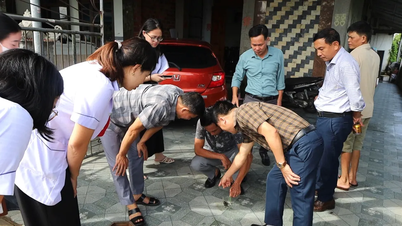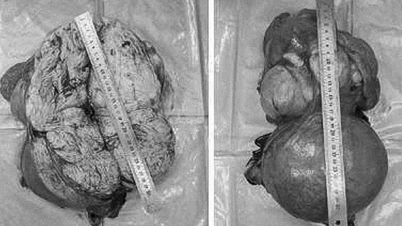The information was emphasized by MSc. Ha Thi Kim Phuong, Department of Nursing - Infection Control and Prevention (Department of Medical Examination and Treatment Management), at the online conference to deploy the national action plan on infection control in medical examination and treatment facilities for the period 2025-2030, held on the morning of April 10 at the Ministry of Health .
Infection control is a key pillar
Master Phuong said that global statistics conducted by WHO in 2022 showed that out of 100 patients in acute care hospitals, 7 patients in high-income countries and 15 patients in low- and middle-income countries contracted at least one hospital-acquired infection during their hospital stay.
On average, 1 in 10 affected patients will die from a hospital-acquired infection. In particular, each year, there are approximately 136 million hospital-acquired infections caused by antibiotic-resistant bacteria.
“It is predicted that by 2050, nearly 3.5 million people may die from hospital infections each year, 4.4 times more than HIV/AIDS and sexually transmitted diseases combined (2021),” Master Phuong informed at the conference.
Meanwhile, hospital infection rates in developing countries are three times higher than in developed countries. At the same time, health systems are under greater pressure due to limited resources and infection control.
Speaking at the conference, Deputy Minister Tran Van Thuan said that infection control is one of the important pillars in ensuring patient safety, quality of medical services, and the health system's response capacity to infectious diseases. The COVID-19 pandemic has affirmed the indispensable role of this work, not only in disease prevention but also in protecting medical staff and the community.
In recent times, the health sector has made great efforts to improve the system, build a legal framework, develop human resources and deploy technical expertise in infection control. These initial results have created an important foundation for improving quality and ensuring safety in medical examination and treatment facilities.
However, we are still facing many difficulties: the difference in resources and capacity between levels of medical examination and treatment; lack of infrastructure, equipment, and materials for infection control; limited awareness of compliance with procedures by a number of medical staff, patients, and their families; especially, antibiotic resistance and the threat of multidrug-resistant bacteria are increasing and the emergence of new and re-emerging epidemics.
These challenges require us to take stronger, more coordinated and timely actions. On that basis, the Ministry of Health has developed and issued the National Action Plan on Infection Control for the period 2025-2030.
“This is an important and strategic document, aiming to synchronize infection control activities nationwide, in line with the strategy to improve the quality of health services and recommendations of the World Health Organization. This will be an important guideline for medical examination and treatment facilities nationwide to systematically, synchronously and effectively implement infection control work,” Deputy Minister Thuan emphasized.
Deputy Minister Tran Van Thuan speaks at the conference. Photo: Ministry of Health |
Focus on monitoring antibiotic use
Mr. Nguyen Trong Khoa, Deputy Director of the Department of Medical Examination and Treatment Management, said that the National Action Plan on infection control in medical examination and treatment facilities for the period 2025-2030 was issued with Decision No. 38/QD-BYT dated January 3, 2025 of the Minister of Health to improve the capacity to prevent and control infections in medical examination and treatment facilities to improve the quality of medical examination and treatment, ensuring the safety of patients, medical staff and the community.
Speaking at the conference, Deputy Minister Tran Van Thuan emphasized that in order for the National Action Plan on infection control in medical examination and treatment facilities for the period 2025-2030 to be effectively put into practice, medical facilities, units and localities must focus on key contents.
Accordingly, infection control is determined to be a regular, continuous, fundamental task, closely linked to quality management and patient safety. This is not only the responsibility of the infection control department but also the shared responsibility of all medical staff in each medical examination and treatment facility.
Proactively develop specific action plans for each locality and unit, suitable to the practical situation, clearly assign responsibilities, have a mechanism for periodic monitoring and evaluation and continuous improvement.
Improve the organization and human resources system for infection control, ensuring professionalism and specialization. Increase investment in facilities, equipment, chemicals, and medical supplies for infection control, while promoting the application of information technology and digital transformation in monitoring and analyzing hospital infection data.
Strictly implement national professional guidelines, ensure synchronous implementation of technical processes and quality criteria issued by the Ministry of Health. Link infection control work with national health programs, especially programs on antibiotic resistance prevention, hospital quality management, disease response and patient safety.
Strengthen communication and raise awareness among both health workers, patients and the community about the importance of infection control. Promote scientific research, technology transfer and expand international cooperation, seek technical and financial support from international organizations and development partners in implementing professional activities and improving system capacity.
On the part of the World Health Organization, Dr. Angela Prat emphasized that infection control plays an extremely important role in ensuring health services in any country. This helps protect health workers and patients from any epidemic. Therefore, efforts to control infections in any health facility, whether public or private, at any level, are for the benefit of the entire system. She also appreciated the progress that Vietnam has made in controlling infections in health facilities.
According to her, to achieve greater efficiency, there needs to be close coordination between countries, international organizations and relevant sectors. The World Health Organization is committed to continuing to support Vietnam in improving its health system, and at the same time developing and implementing solutions to control infections in medical examination and treatment facilities more effectively in the future.
Ngoc Nga
Source: https://baophapluat.vn/du-bao-gan-35-trieu-nguoi-tren-the-gioi-co-the-tu-vong-do-nhiem-khuon-benh-vien-post544957.html








































































































Comment (0)